AI Restores Voice for Stroke Survivor, Predicts Cancer Earlier, and Helps Accelerate Clinical Care! 🤖
Weekly Updates on AI in Medicine 🤖🩺🚀
“The greatest opportunity offered by AI is not reducing errors or workloads, or even curing cancer: it is the opportunity to restore the precious and time-honored connection and trust”
― Eric Topol, Deep Medicine: How Artificial Intelligence Can Make Healthcare Human Again
Dear Med AI Enthusiast,
Welcome to this edition of The Med AI Capsule Weekly Newsletter! ⚕️🤖💊 I'm really excited to have you with me as we dive into the fascinating world of Medical AI.
In this newsletter, I'll be your guide, taking you through the latest updates and thought-provoking ideas in the ever-changing field of artificial intelligence in medicine.
Whether you're an interested medical professional, a tech enthusiast, or just curious about the future of medicine, 'The Med AI Capsule' is here to lead the way and show you the exciting possibilities and cautionary areas for AI in medicine.
So, get ready for an adventure, and let's explore this thrilling journey together!
In today’s capsule:
AI Implant Gives Voice Back to Stroke Survivor After 18 Years
AI Predicts Esophageal and Stomach Cancers Up to 3 Years Early
Microsoft Taps AI to Accelerate Clinical Tools That Help Doctors Save Time
Other Med AI News
Social Post of the Week
Med AI Event
Med AI Work Opportunity
Fun Fact
Reading Time: 5 minutes
QUICK HITS/ LINKS: (Scroll down for deep dive)
Cedars-Sinai Harnesses AI’s Vast Potential to Chart Healthcare’s Future
Mayo Clinic Explores AI to Improve Organ Transplant Outcomes
Singapore’s NUHS Taps ChatGPT to Boost Clinician Productivity
AI Implant Gives Voice Back to Stroke Survivor After 18 Years

Researchers at UC San Francisco and UC Berkeley have developed a brain-computer interface that can translate paralyzed stroke survivor Ann's brain signals into synthesized speech and facial expressions for a digital avatar.
Why is it important?
The technology gives a voice and expressiveness back to people who are unable to speak due to paralysis.
It decodes brain signals into speech at nearly 80 words per minute, vastly improving on current devices.
The AI synthesis personalizes the voice and facial expressions to resemble the person.
It could restore independence, social interaction and a sense of purpose for paralyzed patients.
“Being a part of this study has given me a sense of purpose, I feel like I am contributing to society. It feels like I have a job again. It’s amazing I have lived this long; this study has allowed me to really live while I’m still alive!” - Ann, study participant
Caution:
While promising, the technology needs further development and testing before being ready for widespread clinical use. Factors like wireless connectivity, speed, accuracy, and patient safety need to be optimized. Additionally, ethical considerations around implantation surgeries and patient data must be addressed responsibly. Close collaboration with regulators is important to ensure effective and safe integration into medical practice.
AI Predicts Esophageal and Stomach Cancers Up to 3 Years Early
Researchers at the University of Michigan have developed an AI tool called K-ECAN (Kettles Esophageal and Cardia Adenocarcinoma predictioN tool) that can predict certain forms of esophageal and stomach cancer up to 3 years before diagnosis.
Why is it important?
Early detection of these cancers allows for preventative measures and improved outcomes.
K-ECAN is more accurate than current guidelines and tools for identifying at-risk patients.
It uses routine EHR data like demographics, weight, and diagnoses to calculate risk.
Could prompt screening and surveillance in high-risk patients.
"K-ECAN can accurately predict cancer at least three years prior to a diagnosis. This makes it particularly useful because it can identify people who are at elevated risk, regardless of whether they have GERD symptoms or not." - Joel Rubenstein, MD, developer of K-ECAN
Caution:
Further validation of K-ECAN is needed before widespread clinical implementation. There is a risk of over-screening if predictive accuracy is overestimated. The tool should be used to complement clinical judgement, not replace it. Close monitoring of benefits vs. potential harms is required.
Microsoft Taps AI to Accelerate Clinical Tools That Help Doctors Save Time

Epic is collaborating with Microsoft to integrate generative AI tools like copilots into its EHR software to help clinicians work more efficiently.
Why is it important?
The copilot tools aim to automate administrative tasks and save physicians time.
They can suggest medical codes, summarize patient charts, and draft responses to patients.
This could help address physician burnout, staffing shortages, and high admin costs.
The tools run on Microsoft's Azure platform and leverage large language models.
"We're going to make charting easier. The AI will listen to the discussion and create a note in seconds. Then the doctor will review it." - Judy Faulkner, Epic CEO
Caution:
Rigorous testing is needed to ensure accuracy and clinical appropriateness of AI-generated content. There are potential risks around data privacy, security, and over-reliance on automation. Responsible design focusing on the human clinician role is key. Ongoing oversight for unintended consequences will be important as adoption spreads.
Other Med AI News:
Cedars-Sinai is implementing a comprehensive AI strategy centered on enhancing patient care, improving efficiency, driving scientific discovery, and promoting physician wellbeing.
The multi-pronged approach involves investing in AI, seamlessly transitioning innovations into clinical adoption, and ensuring ethical use of the technologies.
An AI Council provides guidance and oversight. AI is already demonstrating impact across Cedars-Sinai's research programs and clinical areas including oncology, cardiology, neurology, obstetrics, orthopedics, and infectious disease.
Mayo Clinic is leveraging artificial intelligence to improve outcomes and reduce the need for organ transplants, given the complexities and changing landscape of transplant medicine.
Solutions include an AI tool that analyzes ECGs to predict heart transplant rejection risk, a device to recover heart function and avoid transplants, and a deep learning model that measures kidney damage in biopsies to optimize medication dosing.
However, high-quality, complete, unbiased data is critical to develop and validate these AI tools. Mayo Clinic is working to ensure data quality and collaborate with diverse patient populations.
The National University Health System (NUHS) in Singapore has launched a ChatGPT-like tool called RUSSELL-GPT to assist clinicians by summarizing patient notes, generating referral letters, and providing medical advice.
The large language model is powered by NUHS' petabyte-scale supercomputer infrastructure Prescience. NUHS plans to expand RUSSELL-GPT's capabilities for analyzing and predicting common conditions.
However, researchers caution that such AI tools can perpetuate biases if not carefully validated, especially for underrepresented patient subgroups. Responsible development and testing is key before full deployment.
SOCIAL POST OF THE WEEK
MED AI EVENT
MED AI WORK OPPORTUNITY
Let’s wrap it up with a historical fun fact!
IIn 1950, British mathematician Alan Turing published a seminal paper on artificial intelligence entitled "Computing Machinery and Intelligence." In it he proposed his famous test of artificial intelligence, now known as "The Turing Test." (Reference)
Stay tuned for our upcoming editions as we explore the latest breakthroughs and dive deep into AI's transformative power, shaping a healthier future.
Warm regards,
P.S.: If you're a medical professional intrigued by artificial intelligence but not sure where to start, I've got something great for you!
Check out my CPD-accredited course on the Bionabu (UK) platform and join our vibrant WhatsApp Community.
For personalized guidance, click HERE.

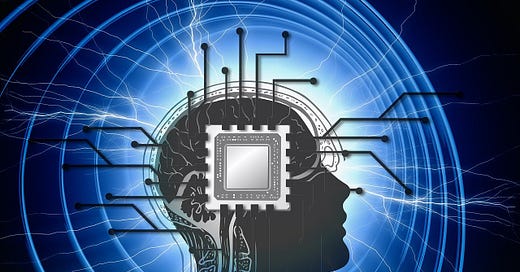


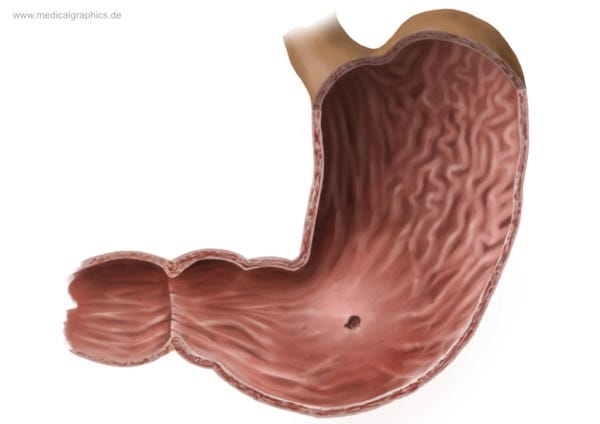
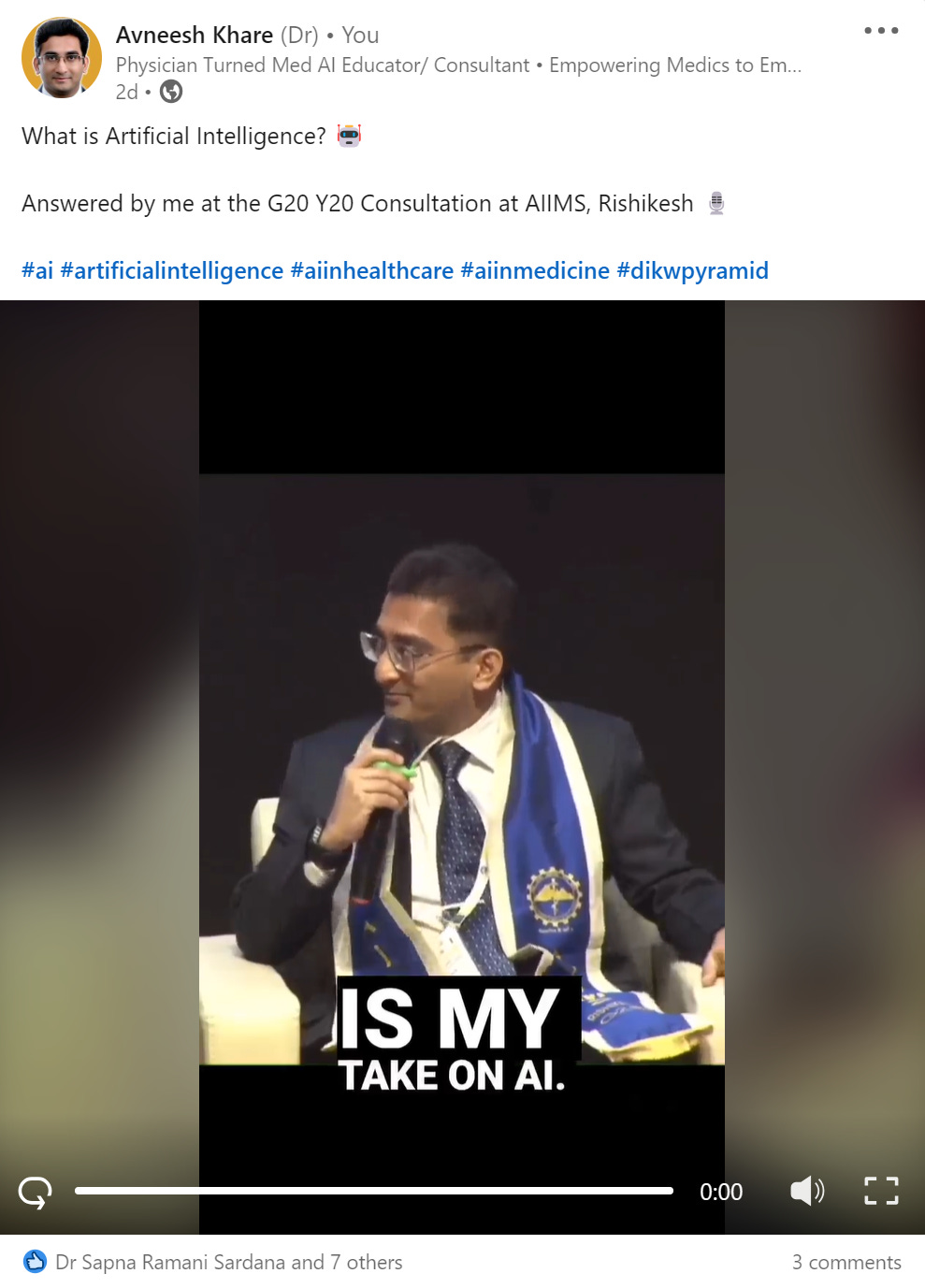
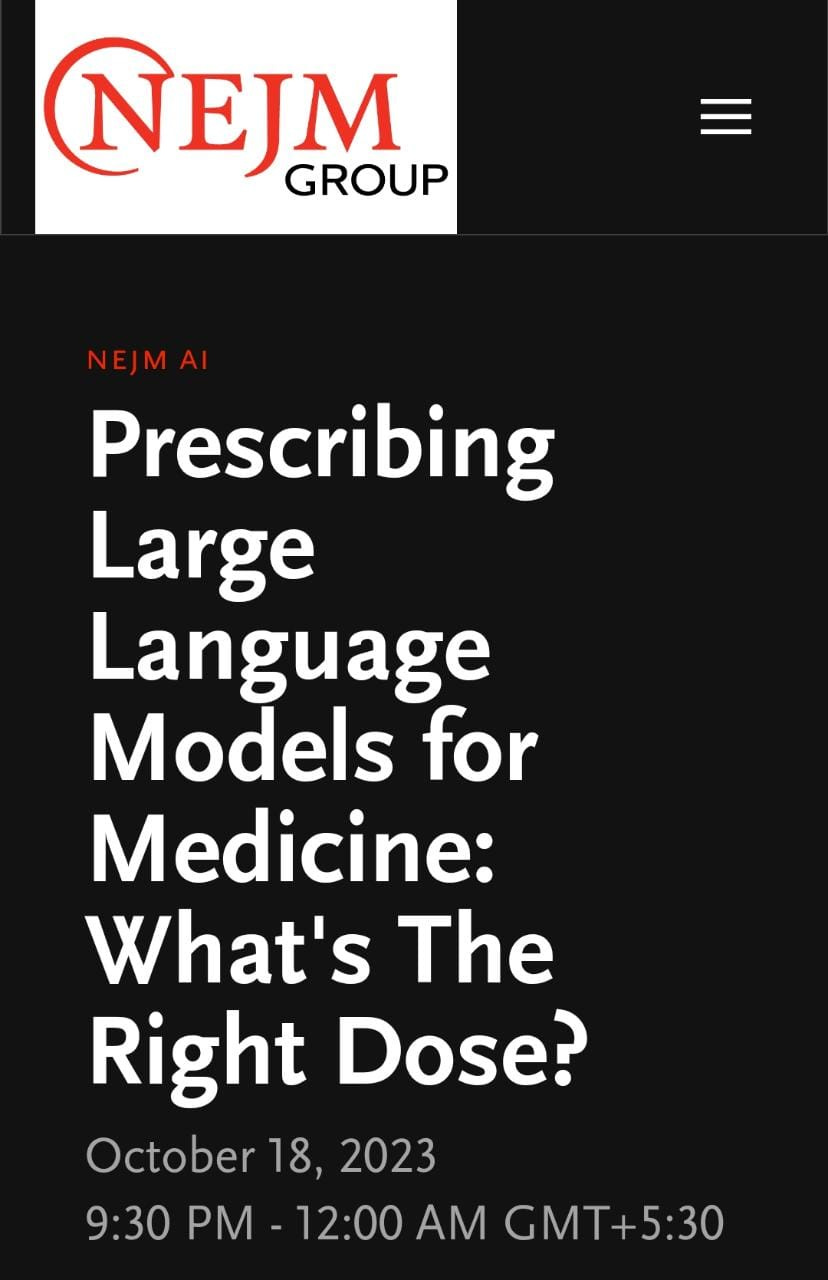
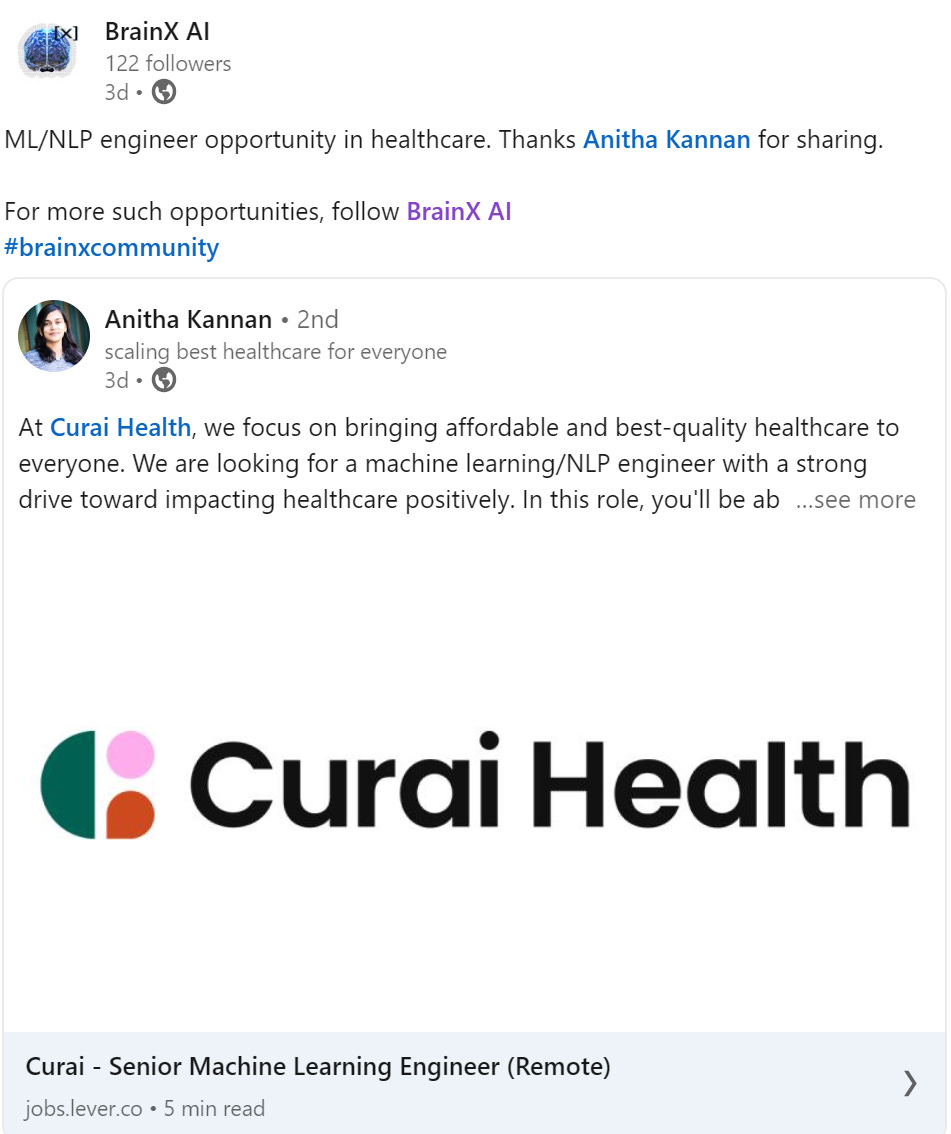

Beautifully formatted. Great content. Your Substack is going to grow in leaps and bounds!